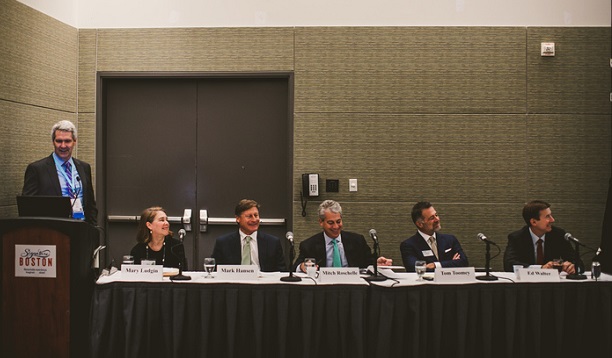It is normal at this stage of the cycle to wonder about when it will end and how. Everyone from economist groups to industry experts have their educated opinions to offer. So little wonder this was a topic of conversation and debate at the Urban Land Institute's annual Emerging Trends conference recently held in Boston.
Andrew Warren, director of Real Estate Research for PWC, said during the conference that he doesn't see a sharp downturn ahead, but more of a plateau.
Recommended For You
“We used to talk about the real estate cycle being in the late innings of a baseball game but this extended recovery is getting into unprecedented territory,” he said. “It's more like the 25th inning, which is the longest baseball game on record. And it's interesting to consider the Australian economy, which hasn't had a recession in over 20 years.”
Mary Ludgin, Heitman's Managing Director of Global Investment Research, had her own thoughts on the subject, saying that “It's delusional to think we are done with real estate cycles in the US economy. Australia has enjoyed a long expansion in large part from consistent demand from the nearby Asian markets. We don't have that.”
The debate about when aside, in a report that accompanied the conference, ULI posed an interesting theory as to why growth will slow and how that will affect real estate.
It posits that the seeds for the upcoming slowdown were planted years ago since at least the global financial crisis. Since then growth has been moderate at best. “The key reason appears to be disappointingly low productivity growth,” the report said.
Slowing Productivity Coupled With Slowing Growth
The report also notes that the most recent Congressional Budget Office projections show average GDP growth of just 1.9% in the 2018-2028 period, with job gains averaging 0.5% annually, or a net increase of 830,000 a year. That is 69,000 new jobs per month, versus the 200,000 per month average since November 2010.
To state the obvious: slower GDP growth will inevitably result in lower levels of real estate market activity.
And therein lies the challenge for real estate markets: a slower growth rate and lower levels of future demand could increase risk in any new project.
The answer, according to the report, is for real estate to seek the most productive use of its existing assets as well as identifying the type of new construction needed by size, design and functionality.
Some suggestions:
- Functional obsolescence is likely to lead to the need for new office space to meet changing tenant demands.
- The current and future shortage of affordable housing may be met by repurposing other property types such as office, retail and hotel.
- Consumer behavior will continue to influence and shape development activity in the retail and industrial sectors.
- Adaptive reuse will likely remain popular as 20 years of successful urban revitalization “has amply illustrated the appeal of adaptability of older buildings in an evolving economy and society.”
Success will come to those markets that tackle their problems innovatively, the report concluded–which will require the right real estate in an increasingly specialized economy. “But success will elude those markets remaining passive or stubbornly applying 20th Century approaches–real estate expansion to ride economic growth–to 21st Century challenges.”
The ETA For a Market Slowdown
Now all we have to do is wait for the slowdown to test this theory. And back we go to the guessing game about an ETA for a slowdown, or recession.
Here's another to add to the repertoire. “I don't expect a recession will be as long and deep and some do,” Mark Hansen, a Senior Vice President with Prologis said at the conference. “I think we're capable of quicker recovery than previous cycles in part from the benefits of technology and from the responsiveness and nimbleness of businesses.”
© Touchpoint Markets, All Rights Reserved. Request academic re-use from www.copyright.com. All other uses, submit a request to [email protected]. For more inforrmation visit Asset & Logo Licensing.








